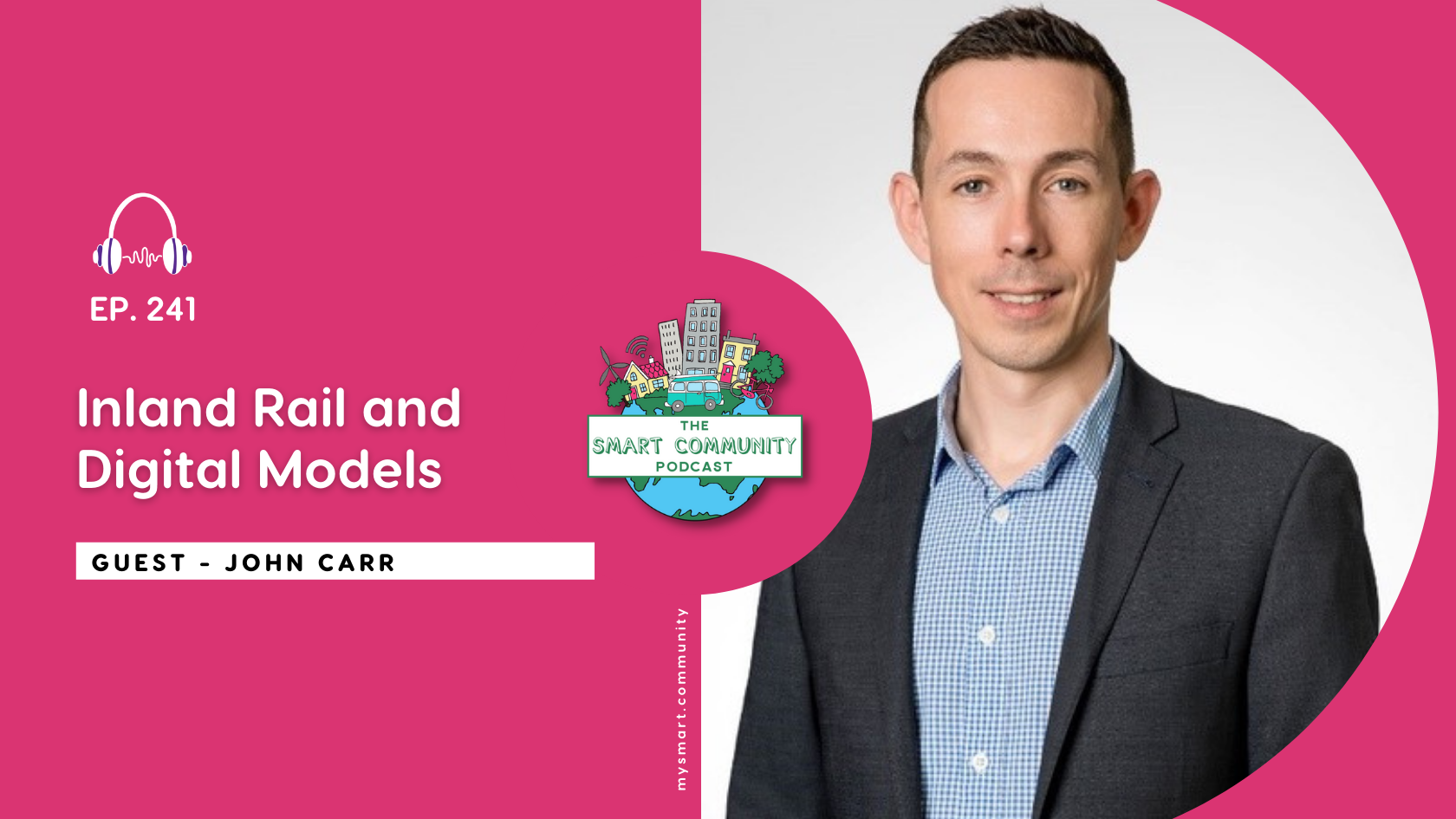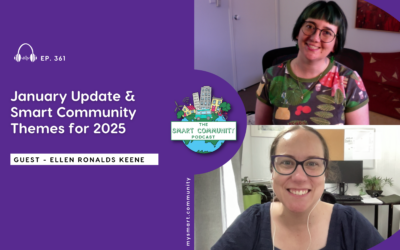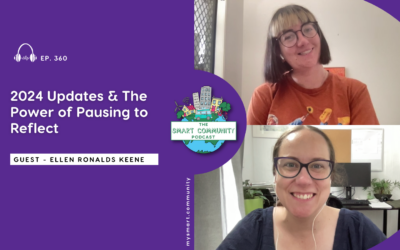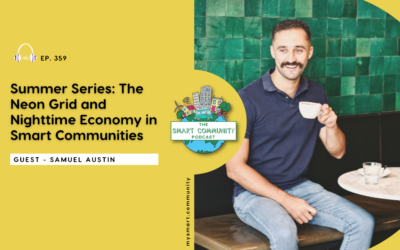Hi #smartcommunity friends! In this episode of the Smart Community podcast, I have a great conversation with John Carr. John is a project manager with ARTC currently delivering the Inland Rail project, specifically the North Star to Border segment which is a once in a generation cross border civil infrastructure project comprising of brownfield, greenfield and major floodplain crossings.
John starts by telling us about his background as a civil engineer, his passion for managing projects that solve problems and give him fulfilment including some examples of those projects before telling us what a Smart Community is to him. We then dive into Inland Rail and John gives us an overview of the project, some of the challenges he has faced and gives us examples of how some of the regional communities have begun to plan for and invest in Inland Rail. We then discuss what intermodal terminals are, their purpose and the desire that Inland Rail will increase the efficiency of freight through these types of terminals.
John then shares with us some examples of the digital models and data collection methods being used to deliver the project and their advantages, before discussing how community and stakeholder engagement has been navigated throughout the project and the advantages of the empirical to analytical data collection loop to show the community relatable data. We finish our chat discussing more about the emerging trend of the empirical to analytical data collection loop, how important this skill set is to teach to young emerging engineers and the emergence of a more personable engineer. As always we hope you enjoyed listening to this episode, as much as we enjoyed making it!
Listen here:
What we cover in this episode:
- John’s background as a civil engineer
- His passion for managing projects that solve problems and give him fulfilment, some of the projects he has worked on in the past, and his current project Inland Rail
- What a Smart Community is to John and how technology and data affects our Smart Communities
- An overview of the Inland Rail project, what is involved and some of the challenges of the project
- How some of the regional communities have begun to activate, plan and invest for Inland Rail
- The purpose of intermodal terminals and the desire that Inland Rail will increase efficiency of freight through these types of terminals
- Some of the types of digital models and data collection being used in the Inland Rail project and the advantages of these to optimise the project outcomes
- Some examples of how community and stakeholder engagement has been navigated throughout the project by taking the empirical data from the community and translating it into analytical data
- The advantage of being able to show the community analytical data in a way that is more understandable, relatable and consumable to them
- The emerging trend of the empirical to analytical data collection loop, how important this skill set is to teach to young emerging engineers and the emergence of a more personable engineer
Quotes:
“I think the Smart Community concept of gathering data, which represents that collective, and gives [the community] the option to very effectively and efficiently make a decision is why I think Smart Communities is, certainly as a concept, something that is gathering huge momentum, because people are recognising this is how we can actually move our community on together.”
“That’s what we do as engineers, we tactilely take something, make it better,”
“The hope with Inland Rail is that this freight line will encourage that all long haul freight is done on trains, and it’s done in the region, specifically to try and encourage growth in those regions. And their intermodal facilities become the hubs of commerce, and that breeds further secondary and tertiary industries.”
“The concept of the digital twin and the virtual digital twin, that’s where we’re at at the moment. And so we have fully built digital models, with all of the assets already listed in them. And it gives us a number of things and a number of advantages.”
“[Empirical data] is experienced, it’s known, but it’s not necessarily verified or quantified to a level that we would use it analytically. So one of the things that we did, that I feel like is working, is spending time gathering empirical data, and then translating that into the analytical side.”
“This is what we’re doing wrong as engineers, we’re not spending the time now reconverting that analytical data into something empirical, something that can be consumed by [the community]. And this is where the digital sphere became extremely powerful for us.”
“Engineers will be required to do a lot more forward facing, and that requires a different type of soft skills and a different type of personality.”
Links:
Episode 229 with Cristina Savian
Connect:
Find the full show notes at: www.mysmart.community
Connect with John via LinkedIn
Connect with me via email: hello@mysmart.community
Connect with My Smart Community via LinkedIn or Twitter and watch on YouTube
The Smart Community Podcast is produced by Perk Digital.






0 Comments